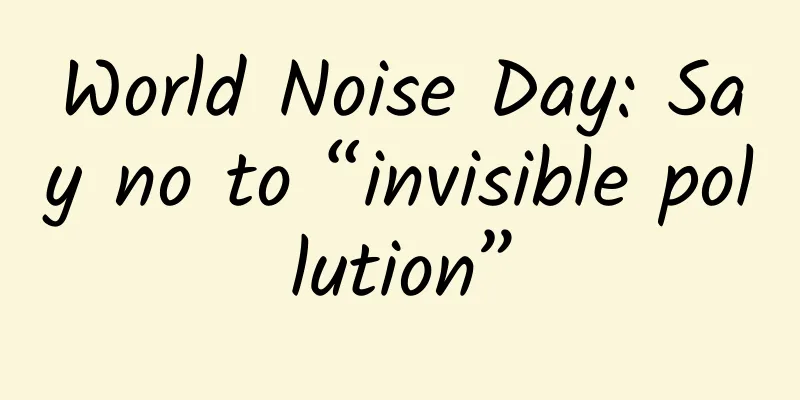Who did Lei Jun bring shame to with his poor English?

|
Xiaomi and Lei Jun becoming the focus of hot discussion is nothing new. This time it is not a big issue about the quality of the mobile phone, but just a topic of idle chat after dinner. But after reading some extreme and fair comments, I feel that the matter has been exaggerated to the point of "embarrassing Chinese entrepreneurs", and I have a little different opinion. So I plan to say a few words, just as a keyboard warrior to exercise his fingers on the weekend, and by the way, to clear my fans. The joke this time was Lei Jun's speech in English at Xiaomi's India launch event. To put it bluntly, it was an old joke about Chinglish. One of China's most successful entrepreneurs greeted his fans and users abroad in a non-fluent, non-standard, non-authentic English (commonly known as Chinglish). Frankly speaking, Lei Jun's English is not good, and I laughed when I saw it. Coupled with his confident smile, it adds a little comedy. But that's all. It's just a two-minute opening greeting, which is just a sideshow. It's okay to laugh at it, but it's boring if you make a big deal out of it. We are not from English-speaking countries, but who didn't learn English this way? I remember when I first started learning English, I even used Chinese to mark the pronunciation of English words, and I was also stumbling when I spoke. People who have learned English probably feel the same way. Ridicule for English beginners is cheap and meaningless. Of course, Lei Jun has not put much effort into learning English. Lei Jun has come to Silicon Valley frequently in recent years, but he did not seem to speak English at the several American events I witnessed. Instead, he communicated with foreigners through an interpreter. Perhaps because he has always relied on an interpreter, he has no motivation to learn English. Moreover, one thing is certain. Xiaomi has so many international employees who are fluent in English. Lei Jun’s English speech obviously did not ask the employees to prepare in advance, so he spoke so haltingly and in a Chinese style. If he had asked the employees to write the lines carefully and read them several times before going on stage, it would not be so funny. After all, no one is perfect, and everyone has strengths and weaknesses. It seems a bit unrealistic to require every Chinese tech tycoon to be as fluent in English as Jack Ma, Robin Li, and Yang Yuanqing, who majored in English, is a top sea turtle, and Yang Yuanqing has worked with Lenovo's foreign executives for many years. Back to Lei Jun, he has outstanding qualities and foresight in many aspects. In four years, he built a startup company with a valuation of more than 45 billion US dollars and became the No. 1 in sales in the Chinese smartphone market. I don’t think it’s particularly shameful that he lacks talent in some aspects. Let me ask you another question: why do we care so much about embarrassing things? Do we need to be so unconfident? Do we need to care so much about our face and laugh at other people's embarrassment? I have met many friends from non-English speaking countries who don't speak English very well, stumbling and even with strange pronunciations, but as long as it doesn't affect communication and expression of meaning, it's not a problem. Besides, my own English is not very good either, so I have no right to laugh at others. Are all those who laugh at Lei Jun really that good at English? Think about it from another perspective. When foreigners speak Chinese, no matter how strange their pronunciation is or how confusing their grammar is, they always receive applause and smiles. Why do Chinese entrepreneurs care so much about their English proficiency? When I met Zuckerberg at an entrepreneur event four years ago, his Chinese pronunciation was still incomprehensible, and he couldn't express simple sentences clearly. His Chinese level was probably not much better than Lei Jun's English now. But I didn't see any domestic readers making fun of him, and I didn't see any Americans making fun of Zuckerberg for speaking such poor Chinese. But it should be pointed out that Zuckerberg's seriousness in learning Chinese is admirable. After a few years, he can already have a full conversation in Chinese, which is far from the level of four years ago. Indian audiences may feel the same way when they hear Lei Jun's English as we did when we heard Zuckerberg speak Chinese: interesting and fun, but with a little tolerance and favorability. Moreover, many Indians I met in Silicon Valley are of course well-educated and can write and read quite well, but their accents are really confusing. As long as they can understand, Americans rarely laugh at these Indians' non-standard pronunciation. Language is just a tool. Well, suppose a successful Chinese entrepreneur goes abroad to expand the market, but his English is poor. How big of a deal is that? It is their international team, various localized marketing promotions, cost-effectiveness and the product itself that really open up the market. Lei Jun's English does not seem to have much impact on whether Xiaomi can open up the Indian market. Perhaps, this kind of ridicule is more directed at Xiaomi and Lei Jun himself. The domestic smartphone industry has always been a stable source of traffic for various jokes and topics. Xiaomi is always at the center of various positive and negative public opinions. I don't need to elaborate on this, and it is also related to their excessive marketing from time to time. Whenever there is a little tail, there will always be a large number of Xiaomi haters flocking in, as if they have found a treasure. After all this talk, the point is that Lei Jun's English is not good, but he himself did not take it seriously, and the audience just laughed it off. If you really want to say "If you are not good at English, don't go abroad and embarrass yourself", it's really not worth it. No one is a jack of all trades or geniuses, and everyone has moments of embarrassment. How fragile must one's nerves be to think that this is embarrassing to go abroad? As a winner of Toutiao's Qingyun Plan and Baijiahao's Bai+ Plan, the 2019 Baidu Digital Author of the Year, the Baijiahao's Most Popular Author in the Technology Field, the 2019 Sogou Technology and Culture Author, and the 2021 Baijiahao Quarterly Influential Creator, he has won many awards, including the 2013 Sohu Best Industry Media Person, the 2015 China New Media Entrepreneurship Competition Beijing Third Place, the 2015 Guangmang Experience Award, the 2015 China New Media Entrepreneurship Competition Finals Third Place, and the 2018 Baidu Dynamic Annual Powerful Celebrity. |
<<: Should community O2O bypass property management?
>>: Is the era of curved TV really coming?
Recommend
Top 10 marketing promotion trends in 2020
With only one week left in 2019, it’s time to loo...
Apple starts cleaning up zombie apps from the App Store!
Before the official version of iOS 10 was release...
LGD production line accident may cause loss of 60,000 glass substrates, large-screen plan is hindered
Recently, a personal safety accident occurred on ...
There are many highlights! Yiwang Constellation was built after many twists and turns
On March 26, with the successful launch of 36 sat...
How many steps are there in the "wandering moon" plan? Yutu wrapped tightly in a small blanket on the moon...
Yesterday was the Lantern Festival on the 15th da...
A fatal obstacle! Don’t delay if the elderly or children have these symptoms!
Audit expert: Qu Bo Chief Physician of General Su...
The most comprehensive in history: 37 ultimate promotion and operation methods for domestic apps
In a word, there is no more comprehensive summary...
What are the differences between the three major Android annotation frameworks Dagger, Hilt and Koin?
Dagger and Koin are undoubtedly the two most popu...
Which industries are Xiaohongshu’s information flow ads suitable for?
In my country, there are more than 400 million fe...
How to make money online? Data recovery project is a good choice
In life, everyone has the experience of wanting t...
Apple Pay is officially launched. Will the mobile payment market be a three-kingdoms drama?
Apple Pay is here. Is it an official announcement...
4 strategies for Xiaohongshu brand promotion!
With the end of the Spring Festival, the topic of...
Samsung completes acquisition of Harman International and enters automotive electronics sector
According to foreign media reports, Samsung Elect...
One-third of children do not get enough sleep. How much sleep do children need in a day?
Just as electronic devices need to be charged, sl...
Can I just pick any router? Every household has its own unique situation!
Routers are the most important devices for Intern...









